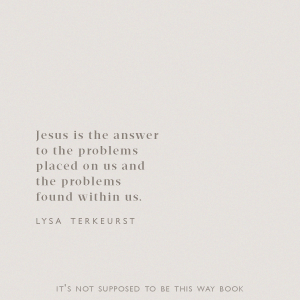
“Purge me with hyssop, and I shall be clean; wash me, and I shall be whiter than snow.” Psalm 51:7 (ESV)

Has sin ever done so much damage in your life that you felt sure you were beyond all hope?
Whether we're dealing with problems placed on us because of the sins of others or the wreckage and heartbreak caused by our own choices, the consequences of sin can be devastating.
King David knew this truth firsthand.
Psalm 51 was written by David after he was confronted about an adulterous affair he had with a woman named Bathsheba. David was horrified by just how far from God his sin had taken him. There were consequences that could never be undone. Bathsheba's husband, Uriah, was killed. And the baby Bathsheba had conceived with David (during the affair) died.
This man after God's own heart (1 Samuel 13:14) was utterly disappointed in himself, but he did exactly what we all need to do. He brought his sin and his pain to God. He invited hope into a situation he could have easily labeled hopeless. I believe God wants us to know we still have hope in the midst of our problems, too.
That's why I want to draw our attention to the plant David mentions in Psalm 51:7 when he prays, "Purge me with hyssop, and I shall be clean; wash me, and I shall be whiter than snow." Hyssop is a plant covered with the most beautiful purple flowers. It acts like a purple thread woven throughout Scripture at some very strategic moments:
1. Hyssop was the paintbrush at Passover in Exodus 12:22.
In Exodus, we read about the problems placed on the children of Israel. Due to a chain of events set off by the jealousy of a few brothers (Genesis 27), the Israelites eventually end up being held captive in Egypt. God sends Moses to ask Pharaoh to set His people free, but Pharaoh's heart was hardened. Many plagues were then sent, but it wasn't until God sent the plague of striking down the firstborn of both human and animal families that Pharaoh changed his mind.
But in order for God to pass over the firstborn of the children of Israel, He told them they must paint the doorframes of their homes with the blood of a lamb. And the tool He asked them to use was very specific — a bunch of hyssop.
Whenever there's a specific detail given in a story like this, my mind immediately wonders, "Where else is hyssop used and why?"
Which brings us to today's passage.
2. Hyssop was the purification tool in Psalm 51:7.
David cries out to God and asks Him to use hyssop to deal with the problems within him.
Why hyssop?
A quick look at Leviticus 14 reveals hyssop was used for people with leprosy — those affected with a skin condition that caused them to be ostracized and placed outside of the city.
David was essentially someone needing to be cleansed. Remember, sin separates us from God. Just like people with infectious skin conditions were separated, so are we when we sin. We are outside of the will of God when we live with an unrepentant heart.
David needed God to cleanse him from his sin within, and so do we. Which ties in with the last encounter with hyssop we're going to talk about today.
3. Hyssop was present when Jesus became the promise fulfilled in John 19:29.
If we turn over to John 19, we will see hyssop is one of the last things Jesus interacted with on this earth.
As Jesus hung on the cross, He said He was thirsty. Then, in John 19:29 we’re told, “A jar full of sour wine stood there, so they put a sponge full of the sour wine on a hyssop branch and held it to his mouth” (ESV). Then He declared, “It is finished,” and breathed His last breath (John 19:30b, ESV).
I love how hyssop weaves all of these moments together and points us straight to the hope we have in Jesus. Hyssop was there as the paintbrush at Passover. Hyssop was there as the purification tool of David. And it was there when Jesus became the ultimate Passover lamb, providing the way for us to be cleansed and purified from all sin.
Oh, how I pray we will let this purple thread weave hope into our stories today. Jesus is the answer to the problems placed on us and the problems found within us. And we are never a people without hope.
Lord Jesus, thank You for the hope and healing You provided for us through the cross. We bring our every problem and need to You today, knowing You are the answer. In Jesus’ Name, Amen.
Psalm 121:1-2, “I lift up my eyes to the mountains — where does my help come from? My help comes from the LORD, the Maker of heaven and earth.” (NIV)
Dig deeper into Lysa TerKeurst’s teaching on problems placed on us and problems within us with her new book, It’s Not Supposed to Be This Way. Order your copy here.
When we wake up, our mind is like a dry sponge. What we soak up first will saturate us most deeply. That’s why we want to invite you to join us on the First 5 app as we study the book of Proverbs in January. Start your day with wisdom from God’s Word when you download the FREE app here today!
Find real-life encouragement when you connect with Lysa TerKeurst here on Instagram.
When have you seen Jesus bring hope to a situation that looked hopeless? Where do you need His hope right now? Join in the conversation here.
© 2018 by Lysa TerKeurst. All rights reserved.
Join the Conversation